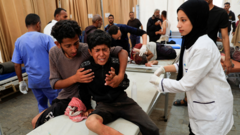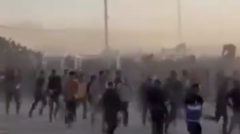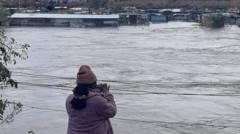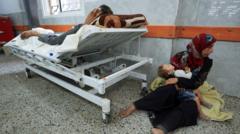Despite temporary ceasefires declared by the military junta and rebel groups, fighting continues in Myanmar, complicating relief efforts for earthquake victims. As of Friday, reports indicate that the military conducted at least 14 attacks since the ceasefires were announced. The junta blames the rebel alliance for ongoing violence, while one rebel group claims their clashes were defensive in response to military aggressions. UN Human Rights Chief Volker Türk has urged an immediate halt to military actions, emphasizing the need for humanitarian aid following the devastating 7.7 magnitude earthquake on March 28, which has left at least 3,564 dead and thousands more in need.
Myanmar Conflict Persists Amid Ceasefires Designed for Earthquake Relief
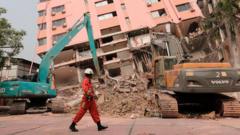
Myanmar Conflict Persists Amid Ceasefires Designed for Earthquake Relief
Ceasefires intended for earthquake relief efforts in Myanmar are overshadowed by ongoing military hostilities.
The civil war between the junta and various ethnic militias has been exacerbated by the recent natural disaster. A coordinated humanitarian effort is hampered by military restrictions on access to essential areas, intensifying the crises faced by nearly 20 million individuals already in need prior to the earthquake. The situation remains critical as aftershocks continue to instill fear among survivors, causing further distress to an already traumatized population.
Rescue operations have been challenging, with reports of rain complicating the situation for aid groups. With overcrowded makeshift shelters and urgent food, water, and power needs, survivors are relying on local efforts for immediate support as the broader humanitarian mission falters under conflict-generated limitations. The persistent turmoil highlights a complex crisis that intertwines natural disaster with the longstanding impacts of civil war, raising urgent questions about the future of aid and stability in the region.
Rescue operations have been challenging, with reports of rain complicating the situation for aid groups. With overcrowded makeshift shelters and urgent food, water, and power needs, survivors are relying on local efforts for immediate support as the broader humanitarian mission falters under conflict-generated limitations. The persistent turmoil highlights a complex crisis that intertwines natural disaster with the longstanding impacts of civil war, raising urgent questions about the future of aid and stability in the region.


